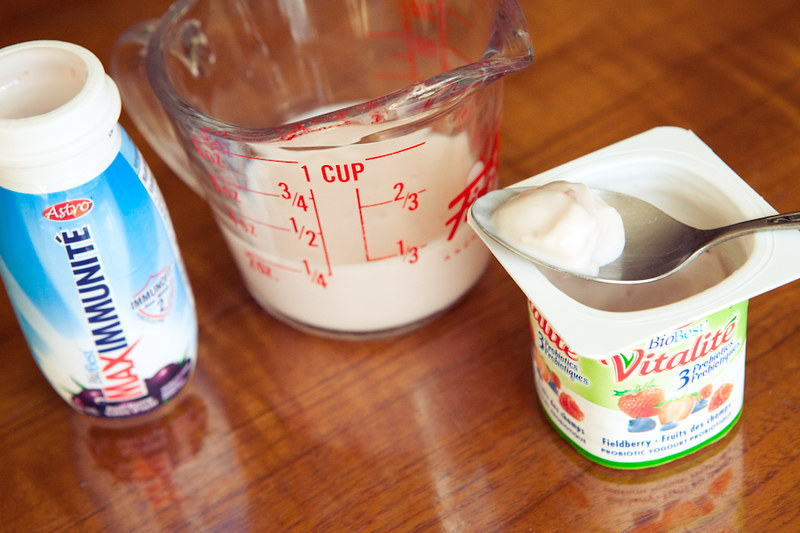Last Updated on November 7, 2024 by Ruby And The Wolf
Gut health is getting a lot of buzz these days, and for a good reason. A healthy gut plays a major role in everything from digesting food to keeping our immune system strong and even balancing our mood. But if you’re just getting into gut health, you’ve probably noticed a few new terms on the labels of supplements: probiotics, prebiotics, and postbiotics. They might sound similar, but each has a unique role in supporting your gut and overall health.
Today, we’re going to break down what each of these “biotics” really does, why they’re essential, and how to decide which ones could be right for you.
1. Probiotics: The Friendly Bacteria
Let’s start with the crowd favorite—probiotics. These are live microorganisms, often referred to as “good” or “friendly” bacteria, that provide various health benefits when consumed. Probiotics help maintain a balanced gut microbiome by keeping harmful bacteria in check, aiding digestion, and supporting immune health.
Probiotics can be found in fermented foods like yogurt, sauerkraut, kimchi, and kefir, but they’re also widely available in supplement form. Each strain of probiotic bacteria offers different benefits. For example:
- Lactobacillus strains are great for digestion and can help reduce symptoms of irritable bowel syndrome (IBS).
- Bifidobacterium strains may improve gut health and reduce inflammation, which is especially helpful for people with digestive disorders.
When you take a probiotic supplement or eat a food rich in these beneficial bacteria, you’re introducing new allies to your gut that help maintain a healthy balance. Think of them as the reinforcements that help your body fend off pathogens, support nutrient absorption, and keep your gut lining intact.
Who Needs Probiotics?
Probiotics can be helpful for almost anyone, but they’re particularly beneficial if you:
Have recently taken antibiotics, which can disrupt your gut microbiome
Struggle with digestive issues like bloating, gas, or IBS
Want to boost your immune system, especially during cold and flu season
2. Prebiotics: Fuel for Your Microbiome
While probiotics get a lot of attention, prebiotics are equally important. Prebiotics are non-digestible fibers that serve as food for the beneficial bacteria in your gut. Without prebiotics, probiotics wouldn’t have the nutrients they need to thrive.
Common sources of prebiotics include fibrous foods like garlic, onions, bananas, and asparagus, but they’re also available in prebiotic supplements if you’re not getting enough through your diet. The goal with prebiotics is to nourish the good bacteria in your gut, allowing them to multiply and continue supporting your digestive and immune health.
How Do Prebiotics Work?
Think of prebiotics as fertilizer for your gut garden. By feeding the beneficial bacteria, they help create a thriving environment that keeps your gut balanced and supports your body’s natural defenses. This can be especially helpful for those looking to:
- Improve digestion and regularity
- Reduce inflammation
- Support immune function, as a healthy gut microbiome plays a key role in fighting off infections
Who Needs Prebiotics?
Most people can benefit from including more prebiotics in their diet. However, they can be particularly helpful if you:
- Want to support a diverse and healthy gut microbiome
- Often feel bloated or experience digestive discomfort
- Are looking for ways to enhance the effectiveness of your probiotic supplements
3. Postbiotics: The Final Product
If probiotics are the beneficial bacteria and prebiotics are the fuel, postbiotics are the byproducts created after probiotics digest prebiotics. They include beneficial compounds like short-chain fatty acids, enzymes, and certain vitamins. Postbiotics are gaining attention as a potential new way to support gut health, as they’re thought to offer many of the same benefits as probiotics—without the need to introduce live bacteria.
Some emerging research suggests that postbiotics may be particularly effective in reducing inflammation, supporting gut barrier function, and possibly even benefiting metabolic health. While postbiotics are still relatively new in the supplement world, they’re naturally produced in a healthy gut. However, supplements are becoming more widely available for those who want an extra boost.
Who Needs Postbiotics?
Since postbiotics are essentially the end result of a healthy gut, they can benefit almost anyone.
They may be especially useful if you:
- Have sensitivities to live probiotic strains
- Want additional support for inflammation and immune health
- Are looking for a gentler way to boost gut health without live bacteria
How to Decide Which Supplements You Need
Now that we’ve covered the basics of each, you might be wondering which is right for you. Here’s a quick guide:
- If you’re looking to balance your gut and support digestive health, consider starting with a probiotic supplement, especially if you’ve recently taken antibiotics or have specific gut health concerns.
- If you want to enhance the effects of probiotics, incorporate more prebiotic-rich foods into your diet, or add a prebiotic supplement. Think of prebiotics as a way to maximize your probiotic efforts.
- If you have trouble with probiotics but still want to support gut health, postbiotics might be a gentler option. Since they don’t contain live bacteria, they may be easier to tolerate for some people.
Final Thoughts: The Power of a Balanced Gut
Achieving a healthy gut isn’t about choosing between probiotics, prebiotics, and postbiotics. In reality, they all play different roles in creating a balanced and diverse gut microbiome. For most people, a combination of all three is ideal. Incorporating a variety of fibers and fermented foods into your diet, along with supplements if needed, can help you support a thriving gut environment.
With a better understanding of what each of these supplements does, you can feel more confident in selecting the right support for your gut. And remember—gut health isn’t just about avoiding digestive discomfort. It’s a core component of overall health that impacts your immune system, mood, and even skin health. So, treat your gut well, and your whole body will thank you.

